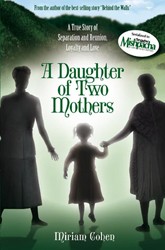By
– August 30, 2011
There are few topics that even half a century later still inspire anger and even rifts between friends in the Jewish community. One of these is the story of Rezso Kasztner.
Kasztner led the Vaad Hatzalah (The Rescue Committee to Save Jews) in Budapest. He took his role seriously and negotiated with Adolph Eichmann to save Jews in Hungary. The negotiation became known as the “trucks for Jews trade.” Kasztner saved 1,684 Jews from certain death. He never told the other Jews, those who remained behind in Budapest, of their impending fate. He never told them that they were to be deported to Auschwitz where they would almost certainly be killed.
The question was: who would Kasztner put on the list to save? Was Rezso Kasztner a hero or a villain?
After the war, Kasztner moved to Israel and became a spokesman for the Ministry of Trade and Industry under Moshe Sharret. When a pamphlet was published describing Kasztner’s actions, the Government of Israel sued the writer for libel. The judge ruled that Kasztner had “sold his soul to the devil.” The issue was so explosive that it brought down Sharret’s government. On March 3, 1957, Kasztner was assassinated on a beach in Tel Aviv.
This book is part history, part survivor account. The author, Ladislaus Lob, who is both a historian and a survivor, allows for the opposing view, but he sees Rezso Kasztner as a hero. Lob has written for him a passionate defense.
Kasztner led the Vaad Hatzalah (The Rescue Committee to Save Jews) in Budapest. He took his role seriously and negotiated with Adolph Eichmann to save Jews in Hungary. The negotiation became known as the “trucks for Jews trade.” Kasztner saved 1,684 Jews from certain death. He never told the other Jews, those who remained behind in Budapest, of their impending fate. He never told them that they were to be deported to Auschwitz where they would almost certainly be killed.
The question was: who would Kasztner put on the list to save? Was Rezso Kasztner a hero or a villain?
After the war, Kasztner moved to Israel and became a spokesman for the Ministry of Trade and Industry under Moshe Sharret. When a pamphlet was published describing Kasztner’s actions, the Government of Israel sued the writer for libel. The judge ruled that Kasztner had “sold his soul to the devil.” The issue was so explosive that it brought down Sharret’s government. On March 3, 1957, Kasztner was assassinated on a beach in Tel Aviv.
This book is part history, part survivor account. The author, Ladislaus Lob, who is both a historian and a survivor, allows for the opposing view, but he sees Rezso Kasztner as a hero. Lob has written for him a passionate defense.
Micah D. Halpern is a columnist and a social and political commentator. He is the author of What You Need To Know About: Terror, and maintains The Micah Report at www.micahhalpern.com.





